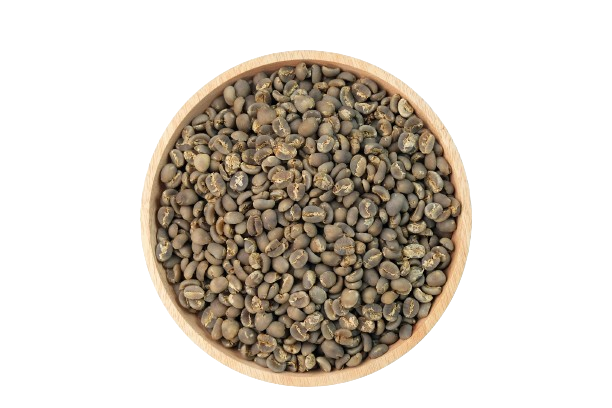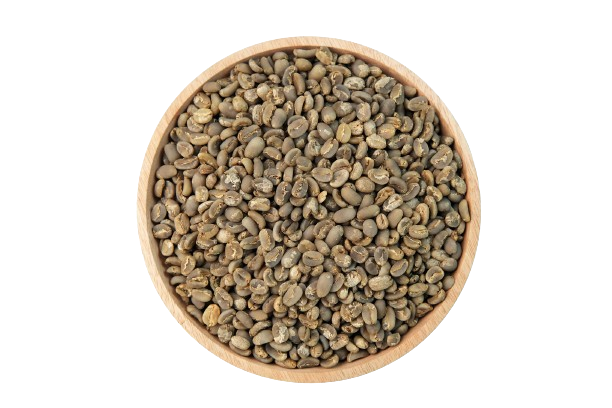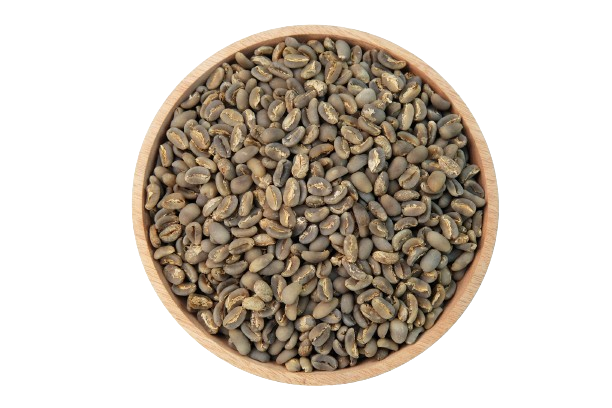Luwak Coffee
Luwak Coffee (Wild Civet Arabica Coffee)
Luwak (Wild Civet Arabica Coffee)
Price
Green Bean :
$50/KG
Roasted :
$ 77.40/KG
Powder :
$ 79.40/KG
Green Bean :
Roasted :
$ 77.40/KG
Powder :
$ 79.40/KG
Green Beans Coffee :
60 kg
30 kg
10 kg
5 kg
Roasted and Ground Coffee :
250 gr
500 gr
1 kg
Coffee Luwak (Wild Civet Arabica Coffee)
Green Beans Coffee
| Products | Price |
|---|---|
| Jute Bag 60 Kg | $3,000 |
| Jute Bag 30 Kg | $1,500 |
| Jute Bag 10 Kg | $500 |
| Jute Bag 5 Kg | $250 |
Roasted Coffee
| Products | Price |
|---|---|
| Pouch 1 Kg | $77.40 |
| Pouch 500 Gr | $39 |
| Pouch 250 Gr | $19.35 |
Ground Coffee
| Products | Price |
|---|---|
| Pouch 1 Kg | $79.40 |
| Pouch 500 Gr | $39.70 |
| Pouch 250 Gr | $19.85 |
Description Of product
Luwak coffee, also known as civet coffee, is a unique and highly sought-after coffee variety that originates from the feces of wild civet cats. Specifically, Luwak coffee refers to the Arabica coffee beans consumed and excreted by the Asian palm civet, a small mammal native to the coffee-growing regions of Southeast Asia, including Indonesia.
Characteristics
Fragrance/Aroma: Fresh Nutty, vanilla, strong and gentle almond
Flavor: Herbal, Refreshing, Spicy
Acidity: Soft-Medium
Body: Soft-Mild
Specification
Screen Size: 15-18
Moisture: Max 13%
Triage: Max 6-8%
Defect Value: 6-8
Description Scheme
Time from Flowers to Be Berry: 9 Months
Production (Kg/Ha): 800 to 1500
Optimal Temperature: 13 to 28°C
Optimal Rainfall: 100 to 3000 mm
Altitude: 1200 to 1700 from Sea Level (asl)
Soil Type: Black Soil /Soil Formed of Young Materials are very Fertile and Volcanic and contain Micro Nutrients Important to Plants.
Country of Origin: Indonesia
Production Areas: Arabica Plantation Sumatra, Java, Bali
Caffeine Content: 0.8 to 1.4%
Form of Seeds: Flat with a Clear Midline
Character Stew: Balance body, acidity, sweetness, fine Chocolate, Almond
Method of Harvest: Collecting Luwak’s Secretion
Processing Method:: Semi Washed Cleaning, manual dry hulled
Coffee Luwak (Wild Civet Arabica Coffee)
Green Beans Coffee
| Products | Price |
|---|---|
| Jute Bag 60 Kg | $3,000 |
| Jute Bag 30 Kg | $1,500 |
| Jute Bag 10 Kg | $500 |
| Jute Bag 5 Kg | $250 |
Roasted Coffee
| Products | Price |
|---|---|
| Pouch 1 Kg | $77.40 |
| Pouch 500 Gr | $39 |
| Pouch 250 Gr | $19.35 |
Ground Coffee
| Products | Price |
|---|---|
| Pouch 1 Kg | $79.40 |
| Pouch 500 Gr | $39.70 |
| Pouch 250 Gr | $19.85 |
Have a question? Please contact us: info@fnb.co.id
About Luwak Coffee (Wild Civet Arabica Coffee)
Luwak coffee, also known as wild civet Arabica coffee, is a highly prized and unique coffee variety that originates from the feces of wild civet cats in Southeast Asia, particularly Indonesia. It is renowned for its distinct flavor profile and the intriguing process by which it is produced.
In its natural habitat, the Asian palm civet, a small mammal, roams freely and selectively consumes the ripest and highest-quality coffee cherries from Arabica coffee plants. The cherries pass through the civet’s digestive system, undergoing a fermentation process as enzymes in its stomach interact with the beans. This fermentation is believed to contribute to the unique flavor profile of Luwak coffee.
Luwak coffee or wild civet Arabica coffee, offers a truly unique and intriguing coffee experience. Its distinct flavor profile, derived from the natural fermentation process within the civet’s digestive system, sets it apart from other coffees. While enjoying a cup of Luwak coffee, it is essential to be mindful of ethical considerations and support producers who prioritize the well-being of the civets involved in the coffee’s production.
Here are some facts about Luwak Coffee (Wild Civet Arabica Coffee) if you want to try this authentic Indonesian coffee!
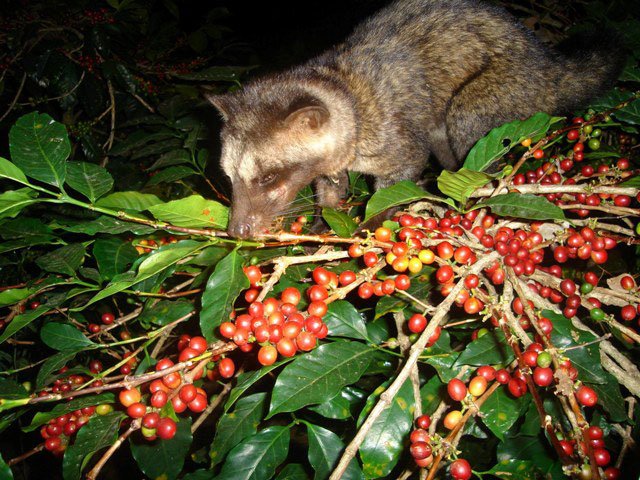
About Luwak Coffee (Wild Civet Arabica Coffee)

Luwak coffee, also known as wild civet Arabica coffee, is a highly prized and unique coffee variety that originates from the feces of wild civet cats in Southeast Asia, particularly Indonesia. It is renowned for its distinct flavor profile and the intriguing process by which it is produced.
In its natural habitat, the Asian palm civet, a small mammal, roams freely and selectively consumes the ripest and highest-quality coffee cherries from Arabica coffee plants. The cherries pass through the civet’s digestive system, undergoing a fermentation process as enzymes in its stomach interact with the beans. This fermentation is believed to contribute to the unique flavor profile of Luwak coffee.
Luwak coffee or wild civet Arabica coffee, offers a truly unique and intriguing coffee experience. Its distinct flavor profile, derived from the natural fermentation process within the civet’s digestive system, sets it apart from other coffees. While enjoying a cup of Luwak coffee, it is essential to be mindful of ethical considerations and support producers who prioritize the well-being of the civets involved in the coffee’s production.
Here are some facts about Luwak Coffee (Wild Civet Arabica Coffee) if you want to try this authentic Indonesian coffee!
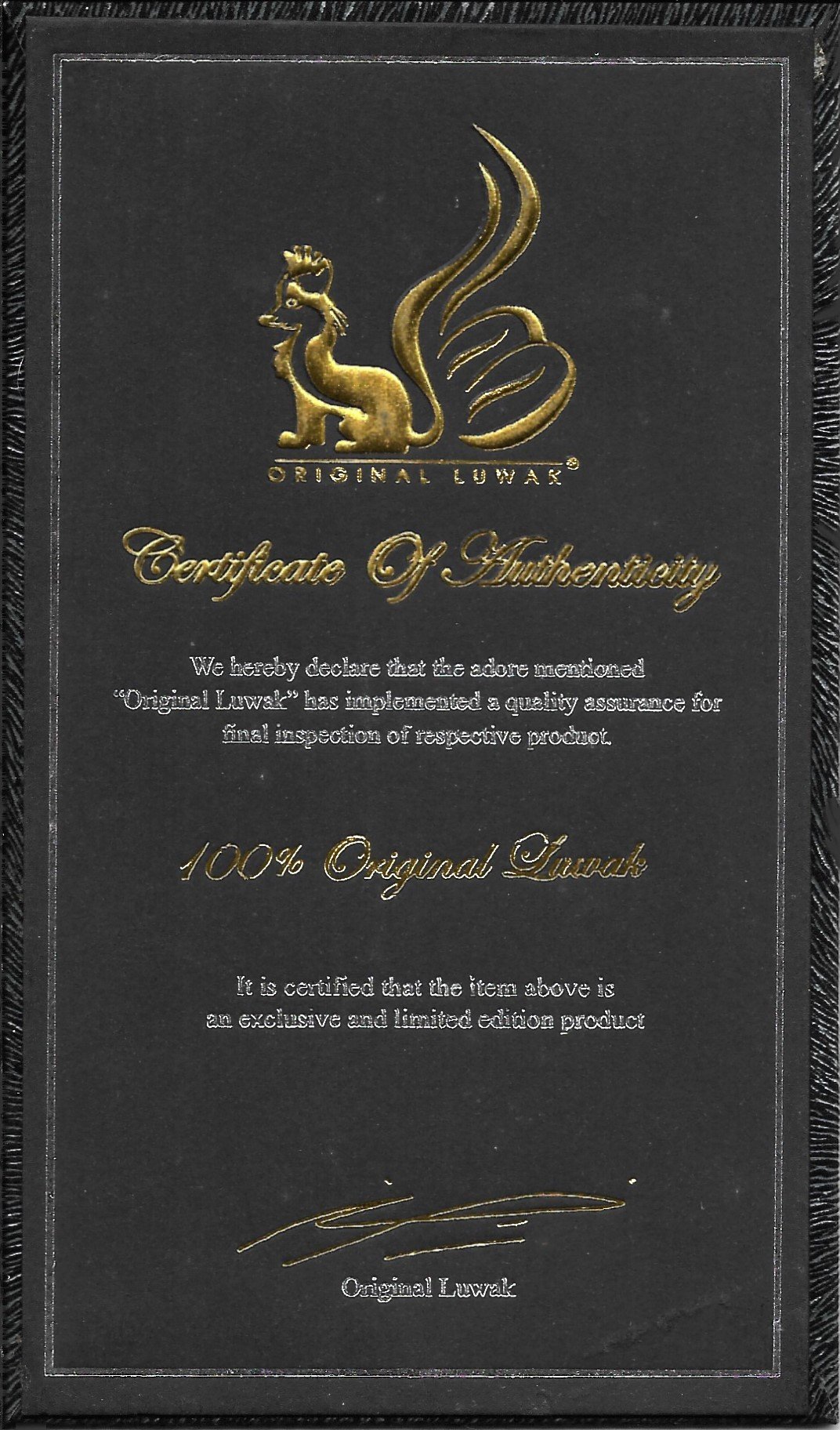
History of Luwak Coffee (Wild Civet Arabica Coffee)
Luwak coffee, also known as civet coffee, has a rich history rooted in the colonial era of Southeast Asia. During the 18th and 19th centuries, when coffee cultivation flourished in the Dutch East Indies (now Indonesia), wild civets called luwaks inhabited the same regions. These civets, known for their selective consumption of the ripest coffee cherries, played a crucial role in the unique production process of Luwak coffee. Local farmers discovered that the beans passed through the civet’s digestive system underwent fermentation and enzymatic changes, resulting in distinct flavors. They began collecting the beans from civet droppings and processing them into a luxury coffee variety.
Luwak coffee gained popularity for its exceptional taste and the intriguing story behind its production. The rarity and labor-intensive process of collecting the beans contributed to its exclusivity and high price. However, ethical concerns arose as some farmers began confining civets in cages and force-feeding them coffee cherries. This led to efforts to promote and certify “wild” or “free-range” Luwak coffee, ensuring that the beans were sourced from civets in their natural habitats
Today, Luwak coffee remains a niche and sought-after variety, blending tradition, intrigue, and ethical considerations. Its history reflects the intricate relationship between coffee cultivation, wildlife, and human ingenuity, making it a fascinating part of the coffee industry’s heritage in Southeast Asia.
History of Luwak Coffee (Wild Civet Arabica Coffee)
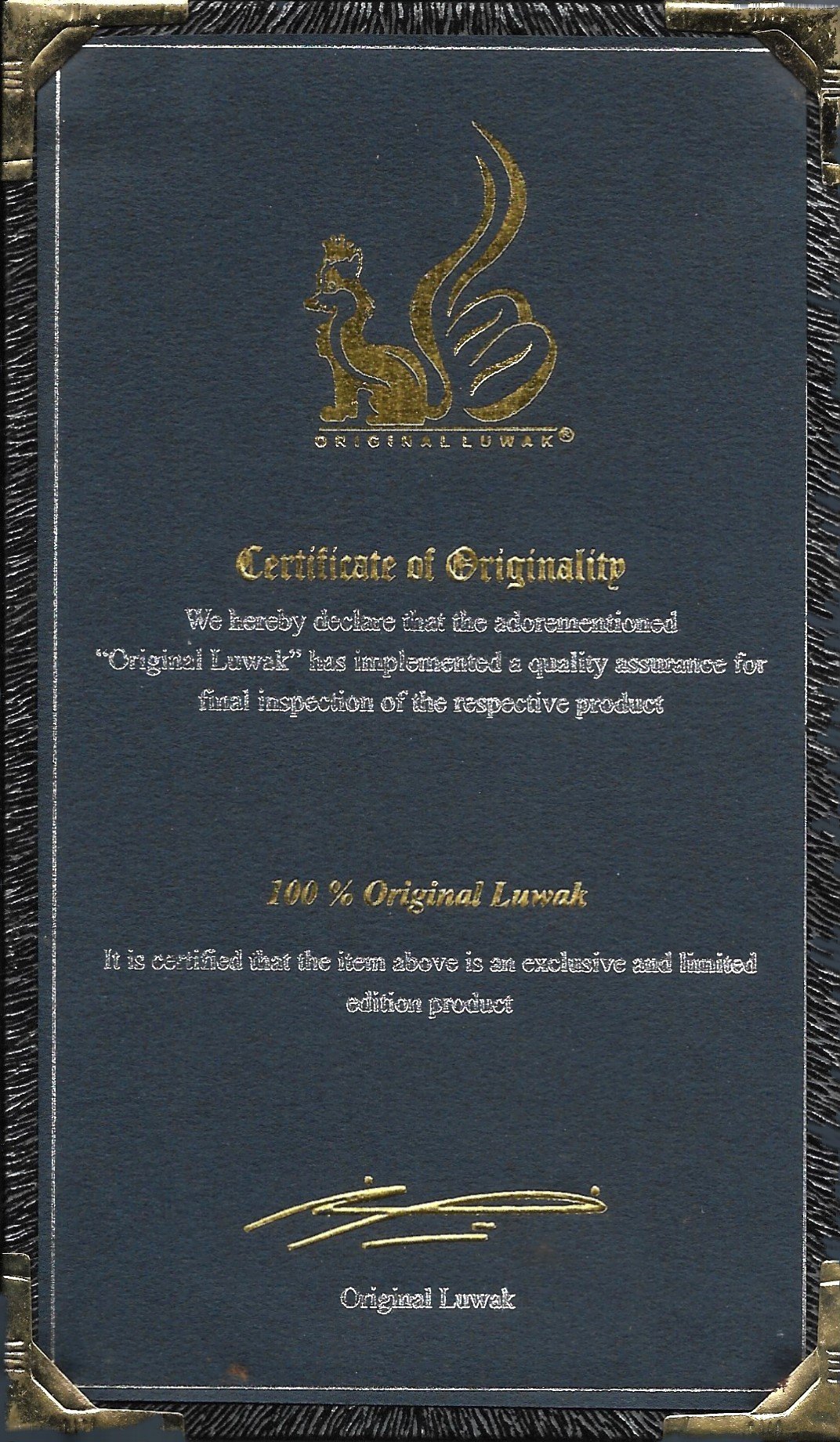
Luwak coffee gained popularity for its exceptional taste and the intriguing story behind its production. The rarity and labor-intensive process of collecting the beans contributed to its exclusivity and high price. However, ethical concerns arose as some farmers began confining civets in cages and force-feeding them coffee cherries. This led to efforts to promote and certify “wild” or “free-range” Luwak coffee, ensuring that the beans were sourced from civets in their natural habitats
Today, Luwak coffee remains a niche and sought-after variety, blending tradition, intrigue, and ethical considerations. Its history reflects the intricate relationship between coffee cultivation, wildlife, and human ingenuity, making it a fascinating part of the coffee industry’s heritage in Southeast Asia.

Catalogue
Download in PDF file

Flyer
Download Our Flyer

Price List
Price List

FAQ
Frequently Asked Questions

Contract
Make Draft Contract

Distributor
Apply as Distributor
Collecting Parchment
Cupping
Hulling
Green Beans
Processing
Plantation
Original Luwak coffee is produced by our own people on 1,200 acres of our plantation, which has Organic Certification and legal certification by the local government of central Aceh.
Direct Collector
Three teams with a total of 18 people direct from our company collect the coffee beans from the wild luwak on our own land-no contractors or farms are used, and the luwak are free to pick the choicest coffee beans available. After the beans are collected (PARCHMENT), we select only the best coffee beans, or about fifty percent of total coffee collected.
The entire harvesting and manufacturing process is controlled and supervised by PT. FandB Tech Indonesia. Thus we can maintain the excellent quality of our Original Luwak, producing it under pristine conditions in accordance with internationally recognized quality standards. Our Original Luwak is 100 percent safe and hygienic, thoroughly cleaned, hulled and treated with ultraviolet to kill any possible bacteria. We process our Original Luwak coffee by the following method.
Roasted
Powder
Packaging
Distribution
Processing

Plantation
Original Luwak coffee is produced by our own people on 1,200 acres of our plantation, which has Organic Certification and legal certification by the local government of central Aceh.
Direct Collector
Three teams with a total of 18 people direct from our company collect the coffee beans from the wild luwak on our own land-no contractors or farms are used, and the luwak are free to pick the choicest coffee beans available. After the beans are collected (PARCHMENT), we select only the best coffee beans, or about fifty percent of total coffee collected.
The entire harvesting and manufacturing process is controlled and supervised by PT. FandB Tech Indonesia. Thus we can maintain the excellent quality of our Original Luwak, producing it under pristine conditions in accordance with internationally recognized quality standards. Our Original Luwak is 100 percent safe and hygienic, thoroughly cleaned, hulled and treated with ultraviolet to kill any possible bacteria. We process our Original Luwak coffee by the following method.
Draft Contract
Please fill form below to make a draft contract
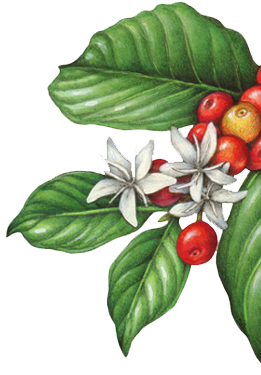

Catalogue
Download in PDF file

Flyer
Download Our Flyer

Price List
Price List

FAQ
Frequently Asked Questions

Contract
Make Draft Contract

Distributor
Apply as Distributor




